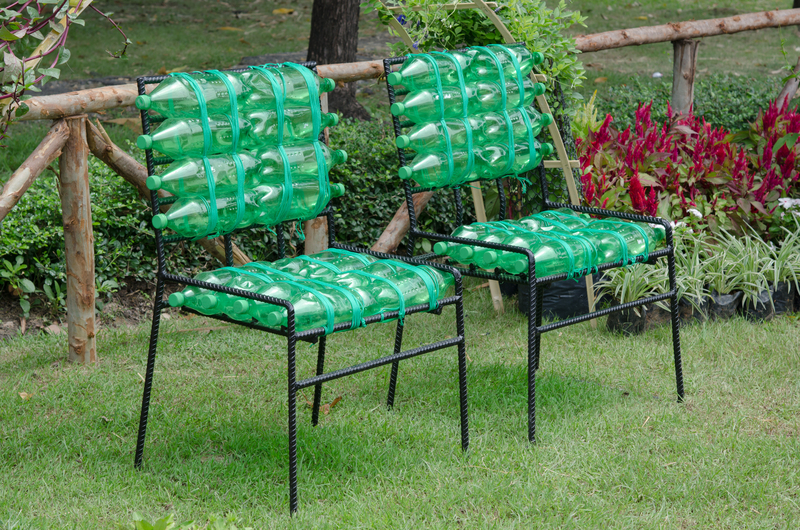Craft a Greener Home with These Recycling Tips
Are you eager to embrace sustainable living and make a difference for the environment? Discover practical ways to craft a greener home with these recycling tips!

Why Recycling at Home Matters
Recycling isn't just about sorting plastic and paper -- it's an easy way to significantly reduce your environmental footprint right from your doorstep. By incorporating effective recycling strategies, you help conserve natural resources, decrease landfill waste, and save energy. Every recycled item contributes to combating climate change and pollution. A greener home starts with responsible choices and a commitment to eco-friendly habits.
Benefits of Home Recycling
- Reduces landfill waste and stretches the lifespan of local dumps.
- Saves energy as recycling materials generally requires less energy compared to producing new products.
- Conserves natural resources by reusing valuable materials like paper, glass, and metals.
- Helps lower your carbon footprint and mitigates climate change effects.
- Encourages eco-awareness and responsible habits among household members.
How to Start Recycling at Home
Getting started with recycling at home is easier than you think! Here are initial steps for setting up a successful recycling system for a greener home:
1. Know What Your Community Accepts
First, research the recycling guidelines in your local area. Municipal recycling programs may differ in what they accept. Check for:
- Accepted plastics, papers, and metals
- Glass recycling policies
- Hazardous material disposal guidelines
- Special collection days for electronics or bulk items
2. Set Up a Recycling Station
Create a dedicated recycling area in your kitchen, garage, or utility room. Label bins clearly for each type of recyclable material. This encourages everyone in your household to participate, making home recycling routines easy and convenient.
3. Clean and Sort Materials
Thoroughly wash food containers and bottles before recycling them. Contaminants can spoil entire batches of otherwise recyclable goods. Sorting materials helps prevent contamination and ensures everything is processed efficiently.
Creative Recycling Tips for a Greener Home
Ready to step up your recycling game? Explore these clever ways to reduce waste and embrace a greener lifestyle at home.
Repurpose Everyday Household Items
- Use glass jars to organize pantry spices or store craft supplies.
- Transform plastic bottles into watering cans or plant containers for your indoor garden.
- Old T-shirts make excellent cleaning rags, eliminating the need for disposable wipes.
- Turn newspapers into compost, mulch, or creative DIY wrapping paper.
Upcycle for Home Decor
- Pallets can be reimagined as rustic furniture or shelving units.
- Old picture frames can become unique serving trays or message boards.
- Wine corks turn into fun bulletin boards or drawer knobs.
Compost Organic Waste
Composting is an excellent way to reduce food and yard waste while producing nutrient-rich fertilizer for your plants.
- Start with a kitchen compost bin for fruit peels, coffee grounds, and eggshells.
- Mix with lawn trimmings and leaves for optimal decomposition.
- Keep meat, dairy, and oily foods out of your compost pile to avoid attracting pests.
Advanced Recycling Tips for a Greener Household
Once you have the basics down, try these advanced tactics to make your home even more sustainable:
Recycle Electronics and Batteries Responsibly
- Locate certified e-waste drop-off sites (many electronics stores offer programs).
- Use mail-in recycling programs for broken phones, rechargeable batteries, and old chargers.
Recycle and Reuse Water
Consider installing a rain barrel to collect runoff for your garden or using gray water from baths for landscaping. These actions can significantly reduce your household's water waste.
Support Brands with Sustainable Packaging
- Choose products with recyclable, compostable, or minimal packaging.
- Select local goods to cut down on shipping waste and emissions.
Common Recycling Mistakes to Avoid
Recycling is only effective when done correctly. Make sure to avoid these frequent errors:
- Plastic bags do not belong in most curbside bins; take them to designated recycling centers instead.
- Discard greasy pizza boxes, which can contaminate paper recycling streams.
- Don't recycle food-soiled items -- always rinse and dry containers first.
- Keep non-recyclable plastics (like straws, utensils, or some packaging films) out of your bin.
Make Recycling a Family Affair
Encourage everyone in your home to participate in sustainable recycling practices. Not only does this keep your household organized, but it also instills eco-friendly values in children from a young age. Here's how to make it fun:
Recycling Challenges and Rewards
- Create a recycling competition -- whoever recycles the most gets a reward!
- Let kids decorate recycling bins with colorful illustrations for each material.
- Set up a "waste audit" to see where your family can improve.
Greener Habits Beyond Recycling
While recycling is a crucial step, the greenest homes embrace a "reduce, reuse, recycle" mindset. Try these extra ideas for lasting impact:
- Choose reusable shopping bags, water bottles, and storage containers.
- Buy second-hand furniture, clothing, and electronics whenever possible.
- Repair broken items instead of tossing them out.
- Support local repair cafes and upcycling workshops.
Smart Buying Decisions for Less Waste
- Select concentrated products (like laundry detergent) that require less packaging.
- Buy in bulk to cut down on excess plastic and cartons.
- Opt for products made from recycled or renewable materials.
Eco-Friendly Disposal: Special Items
Some household items need special attention for green recycling:
- Old paint, chemicals, and cleaners: Find out about hazardous waste collection events in your area.
- Light bulbs and batteries: Never throw these in the trash -- check for local recycling drop-offs.
- Expired medications: Return to pharmacies or approved take-back programs instead of flushing.
Staying Informed About Local Recycling Guidelines
Recycling policies shift frequently as technology improves and markets change. Sign up for local municipality newsletters or follow their online portals. This will keep you updated on:
- Changes in accepted materials
- New recycling technology rollouts
- Community clean-up events and recycling drives

Crafting a Sustainable Home Step-by-Step
Here's a quick recycling plan to help you craft a greener home from scratch:
- Evaluate your current waste and energy consumption patterns.
- Set realistic goals for reducing, reusing, and recycling.
- Establish organized stations for sorting materials.
- Educate your household about best recycling practices.
- Monitor progress, adjust routines, and celebrate your eco-friendly milestones!
Conclusion: Your Greener Home Starts Today
Embracing a sustainable lifestyle doesn't have to be complicated. With a few simple recycling tips for your household, you can shrink your environmental impact, save money, and foster healthier surroundings. Start small, think creatively, and make every effort toward greener living count!
Remember, the journey to a more eco-friendly, greener home begins with your daily choices. With consistent recycling, innovative upcycling, and a mindful approach to consumption, your home can become a beacon of sustainability in your community.
Frequently Asked Questions about Recycling at Home
- Q: What materials are most important to recycle at home?
A: Focus on paper, cardboard, aluminum cans, glass bottles, and certain plastics (check with your local program). - Q: How clean do recyclables need to be?
A: Rinse and remove as much food residue as possible to prevent contamination. - Q: Can I recycle pizza boxes?
A: Only if they are clean and grease-free -- otherwise compost the soiled parts and recycle the clean lid. - Q: What should I do with electronics?
A: Take e-waste to certified recycling centers or return programs instead of tossing them in regular bins.
Ready to craft a greener home? Put these recycling tips into action, and inspire positive change in your household and your community!